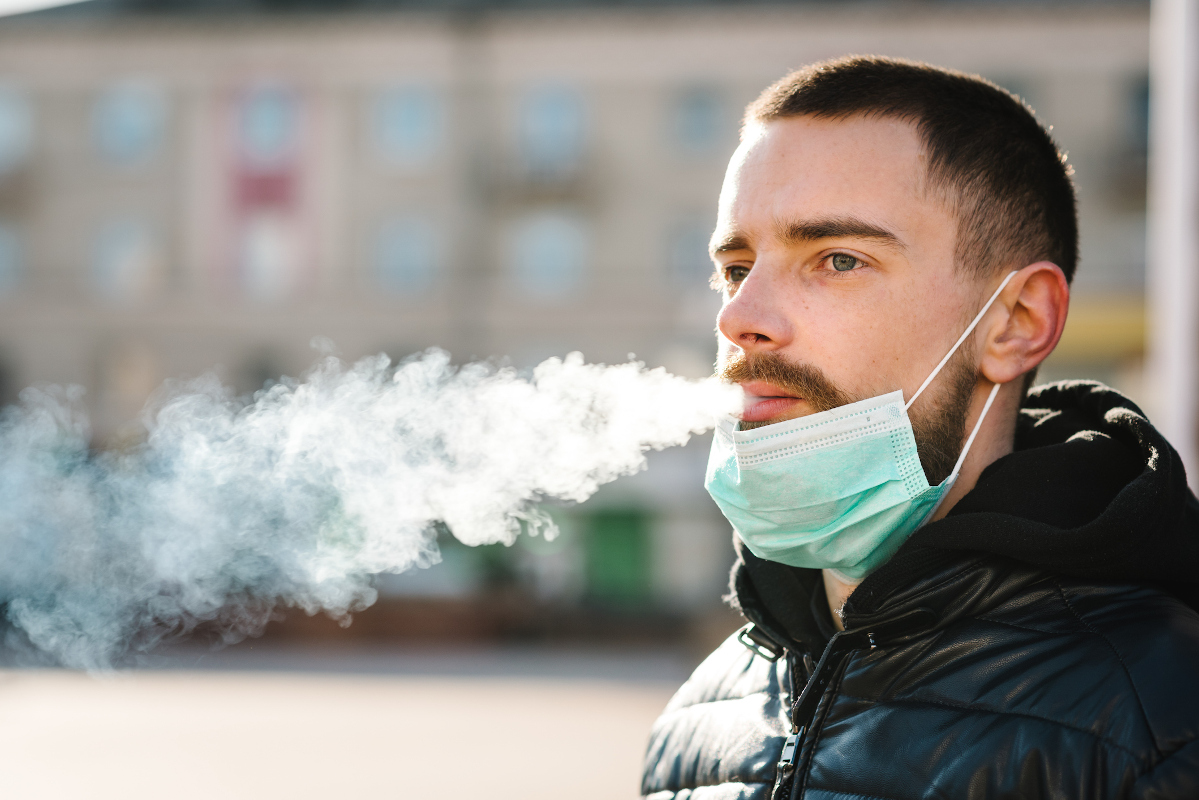Pandemic stress, boredom caused some PA residents to increase cigarette use

Stress, increased free time and feelings of boredom may have contributed to an increase in the number of cigarettes smoked per day during the early months of the COVID-19 pandemic by nearly a third of surveyed Pennsylvania smokers. Penn State College of Medicine researchers said understanding risk factors and developing new strategies for smoking cessation and harm reduction may help public health officials address concerning trends in tobacco use that may have developed as a result of the pandemic.
Jessica Yingst, assistant professor of public health sciences and Penn State Cancer Institute researcher, said smokers who increased the number of cigarettes they smoked per day could be at greater risk of dependence and have a more difficult time quitting.
Researchers asked 291 smokers about their tobacco use patterns before and during the early months of the pandemic including how frequently they used tobacco products, reasons why their use patterns changed and whether they attempted to quit. Nearly a third of smokers reporting increased use due to stress, increased free time and boredom. One participant stated, “Working at home allows me to smoke at will rather than being in a smoke-free environment for 8 hours per day.” In contrast, 10% of participants decreased their tobacco use and attributed that to schedule changes, being around non-smokers such as children and health reasons.
Nearly a quarter of participants reported attempting to quit smoking during the pandemic. A third of those who attempted to quit conveyed that they did so to reduce their risk of poor outcomes should they become infected with COVID-19. One participant stated, “I quit as soon as I came down with a fever and cough. Clearly, I am aware of how detrimental smoking is to my health; however, I did not consider how it could make me more vulnerable to COVID-19 and its effects. I was terrified and quit immediately.” Ultimately, seven people were successful in quitting all tobacco use.
The research team also asked the participants about their perceptions of health risks during the pandemic. More than two-thirds of participants believed their risk of contracting COVID-19 was the same as non-tobacco users. However, more than half of those surveyed thought they were at higher risk to suffer serious complications from COVID-19. The results were published in the International Journal of Environmental Research and Public Health.
“Knowing the reasons for increased tobacco use and the motivations of those who successfully quit smoking can help us identify how to better address cessation efforts during the pandemic,” Yingst said. “New methods like telemedicine and increasing public health messaging could encourage people to stop smoking in the absence of public support groups or other in-person interventions.”
This study was conducted by the Penn State Center for Research on Tobacco and Health. Tobacco users interested in participating in future research can call 844-207-6392 or visit the center’s website to learn more about current studies and find out if they are eligible to participate.
Nicolle Krebs, Candace Bordner, Andrea Hobkirk, Sophia Allen and Jonathan Foulds of Penn State College of Medicine also contributed to this research. Foulds has done paid consulting for pharmaceutical companies involved in producing smoking cessation medications, including GSK, Pfizer, Novartis, J&J and Cypress Bioscience. The other authors have no disclosures to report related to this publication.
This research was supported by the National Institutes of Health and the National Center for Advancing Translational Sciences through Penn State Clinical and Translational Science Institute (UL1 TR002014). The content is solely the responsibility of the authors and does not necessarily represent the official views of the National Institutes of Health.
If you're having trouble accessing this content, or would like it in another format, please email Penn State Health Marketing & Communications.
